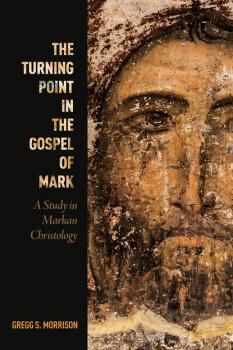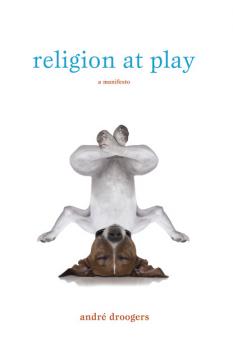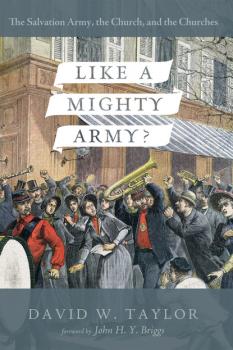MREADZ.COM - много разных книг на любой вкус
Скачивание или чтение онлайн электронных книг.The Turning Point in the Gospel of Mark
Based on linguistic and thematic links in the narrative, The Turning Point in the Gospel of Mark argues that the twin pericopae of Peter's confession (8:27-38) and the Transfiguration (9:2-13) together function as the turning point of the Gospel and serve in a Janus-like manner enabling the reader to see the author's main focus: the identity of Jesus and the significance of that reality for his disciples. Peter's confession of Jesus as Messiah faces backward toward the Prologue (1:1-13) and functions as a mid-course conclusion. The declaration by God on the mountain faces forward and foreshadows the end-course conclusion (14:61-62; 15:39; Son of God). Jesus, in response, teaches that the Son of Man must suffer and die before being raised from the dead (8:31). Christologically, the images of Messiah, Son of Man, and Son of God converge and present Jesus, the crucified, as king, ushering in the kingdom of God in power (9:1 acting as the key swivel between the twin pericopae). When one is confronted with this Jesus, though there remains something elusive about him and the kingdom of God in the narrative, the only wise decision (after calculating the costs, 8:34-38) is to follow.
Toward an African Theology of Fraternal Solidarity
In this book, Ikenna Okafor tackles an interesting and timely topic and demonstrates competence and maturity in developing his insight into Igbo humanism–to make liberation theology from an African perspective into a theology of solidarity and fraternity. With a good narrative style, Okafor critiques the Latin American liberation theological project. And inspired by the hermeneutical implications of «UBE NAWANNE,» the evangelical positioning of material poverty and pathos for the poor as defining Christian discipleship is persuasively presented. The potent nwanne idiom guides his critical evaluation of the social teachings and praxis of the Catholic Church. In fact, it is clear that Okafor embarked on a subject matter that is of theological moment and has creative pastoral implications for the Church of Nigeria, the Churches of Africa, and the World Church.
The Original Ending of Mark
Although traditionally accepted by the church down through the centuries, the longer ending of Mark's Gospel (16:9-20) has been relegated by modern scholarship to the status of a later appendage. The arguments for such a view are chiefly based upon the witness of the two earliest complete manuscripts of Mark, and upon matters of language and style. This work shows that these primary grounds of argumentation are inadequate. It is demonstrated that the church fathers knew the Markan ending from the very earliest days, well over two centuries before the earliest extant manuscripts. The quantity of unique terms in the ending is also seen to fall within the parameters exhibited by undisputed Markan passages. Strong indications of Markan authorship are found in the presence of specific linguistic constructions, a range of literary devices, and the continuation of various themes prominent within the body of the Gospel. Furthermore, the writings of Luke show that the Gospel of Mark known to this author contained the ending. Rather than being a later addition, the evidence is interpreted in terms of a textual omission occurring at a later stage in transmission, probably in Egypt during the second century.
Reading Scripture to Hear God
Recent theological discussions between Catholics and Evangelicals have generated a renewed appreciation for God's ongoing use of Scripture for self-mediation to the Church. Noting the significant influence of Henri de Lubac (one of the drafters of Dei Verbum and proponent of a renewal of the Patristic and Medieval emphasis on a spiritual sense of Scripture), and Kevin Vanhoozer (the leading Evangelical proponent of a theological interpretation of Scripture), Kevin Storer seeks to draw Evangelical and Catholic theologians into dialogue about God's ongoing use of Scripture in the economy of redemption. Storer suggests that a number of traditional tensions between Catholics and Evangelicals, such as the literal or spiritual sense of Scripture, a sacramental or a covenantal model of God's self-mediation, and an emphasis on the authority of Scripture or the authority of the Church, can be eased by shifting greater focus upon God's ongoing use of creaturely realities for the building of the Church in union with Christ. This project seeks to enable Evangelicals to appropriate the insights of de Lubac's Catholic Ressourcement project, while also encouraging Catholic theologians to appreciate Vanhoozer's Evangelical emphasis on God's use of the literal sense of Scripture to build the Church.
Theologies of the 21st Century
What theologies are popular and formative of Christian thinking in the present day? How should they be assessed by those Christians who want to be «in the world» without being «of the world»? Theologies of the 21st Century begins with an overview of the historical roots from which current theological thinking has developed, and then moves on to a detailed evaluation of the chief doctrinal and practical emphases, taking an evangelical biblical perspective that seeks to be at once both critical and irenic.
Francis, Repair My Church
Author John Raub's twenty-eight years as a monk changed him, sharpening his eye to see more deeply into situations with a perspective that welcomes debate, for controversy invites thought.
Pope Francis Revives Vatican II is of interest not just to Catholics, but to all Americans. Drawing on Raub's monastic experience, it offers readers startling insight into the Holocaust, presidents Roosevelt and Eisenhower, Senator Joseph McCarthy, the John Birch Society, the 1960s Civil Rights Movement, the Vietnam War–including Raub's first-hand experience administering to the victims of the Kent State shootings–homosexuality, Obamacare, the Tea Party, the rise of hate groups, and the source of Vladimir Putin's dislike of the West.
The book features a personal letter from President Obama and an analysis of Adlai Stevenson's opinion of Norman Vincent Peale.
There Must Be YOU
We live in the era of dialogue, an era Leonard Swidler helped birth. The son of a Jewish Ukrainian immigrant and an Irish Catholic, he set out as a boy to become an intellectual and a saint. There Must Be YOU explores how and why this aspiring Norbertine priest emerged to become the Professor Swidler of today: a teacher, a reformer of the church, a preeminent feminist, and one of the fathers of interreligious dialogue. He argues passionately that dialogue is a matter of more than peacemaking, but of living an authentically human life. Len's journey begins at the start of the Great Depression, and represents the very turmoil and growth of American modernity: our search for faith, our struggle with diversity, and our fight for social justice.
Written by Len's colleague and friend, this book offers the reader education, inspiration, and challenge through the remarkable stories of Len's life, conversations with him, and excursions into the history of the world that made him who he is. We turn the last page having laughed with Len and argued with him, and having dialogued more deeply with our own lives.
The Pastor in a Changing Society
This book examines how social change affects the role of the pastor in an African context. Through field study in African churches, author Zawadi Job Kinyamagoha explores how pastors work amid the tensions of rapid social change and suggests how pastors can constructively respond to social change by using it as an opportunity in their pastoral ministry.
Contemporary society is characterized by three cultural spheres: the economic sphere, the public sphere, and the democratic or self-governance rule, the realities of which many pastors seem to overlook. Church authorities seem to adhere rigidly to strict principles and rules without accommodating the realities of society. Conversely, a changing society demands that pastors work with the reality at hand, leaving pastors caught between two conflicting tensions: the pressure from church authorities and from a changing social reality.
The Pastor in a Changing Society seeks to help Tanzanian and African pastors rethink existing doctrines and practices in order to better respond to the reality of a changing society.
Religion at Play
– Is a powerful position a guarantee that a religion will continue? – Does God take sides in religious power struggles? – Can God survive religious exclusivity and diversity? – Is God migrating from «out there» to «in here»? – Is religion sustainable in the long run?
In seeking answers to these questions, this book explores the possibilities afforded by playful religion. Religion has playful origins, but this aspect is forgotten as soon as institutional power becomes self-serving instead of subservient. Power changes the very essence of religion. Virtually all religions are distorted versions of a playful original. Institutionalization is religion's curse, not its blessing. Apparent success hides the failure of religion to be faithful to its original intent. This book helps find the way back from bordering to inclusivity and openness.
Like a Mighty Army?
In 1937, prior to the 1948 inauguration of the World Council of Churches, Karl Barth challenged the churches to engage in «real strict sober genuine theology» in order that the unity of the church might be visibly realized. At that time The Salvation Army didn't aspire to being formally known as a church, even though it was a founding member of the WCC. Today it is globally known as a social welfare organization, concerned especially to serve the needs of those who find themselves at the margins of society. Less well known is that seventy years after Barth's challenge it has made its peace with the view that it is a church denomination. Accepting Barth's challenge to the churches, and in dialogue with his own ecumenical ecclesiology, the concept of the church as an Army is interrogated, in service to The Salvation Army's developing understanding of its identity, and to the visible unity of God's church.









